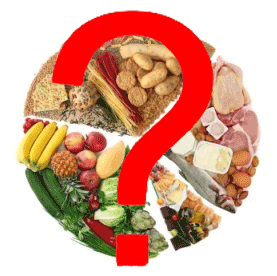Metabolic Types and Your Dietary Needs
Posted on 28. Sep, 2011 by Lora in Blog
 My friend, who is a mother of two and in her early thirties, eats meat like a man twice her size. She can devour one large T-bone steak and still manage to gulp down some side dishes in one sitting. What is surprising is that she doesn’t gain much weight with eating so much meat and her regular check ups reveal no health problems whatsoever. If I ate as much meat as she does, I’d feel nauseated.
My friend, who is a mother of two and in her early thirties, eats meat like a man twice her size. She can devour one large T-bone steak and still manage to gulp down some side dishes in one sitting. What is surprising is that she doesn’t gain much weight with eating so much meat and her regular check ups reveal no health problems whatsoever. If I ate as much meat as she does, I’d feel nauseated.
Then there are the various diet fads in the market that can leave you quite confused. Which diet should we really follow – the high fat, high protein and low carb diet or the low fat high carb one? And seriously why do the so-called health experts and nutritionists contradict one another? The key to all these is metabolic type.
We all know that as human beings, each one of us is different. We are all unique. Well, that rings true not only on our personalities and physical appearances but also on our biochemical make up. The truth is we all have different metabolism. When you hear of testimonies and stories about some people who found success on a particular diet, you usually don’t get to hear about the others who did not, the 30-50 percent who never benefited at all. The fact is, no one diet is right for everyone.
That’s because we are all biochemically different. Our bodies function and react best on different mixtures of carbohydrates, proteins and fats. So what works for Jane may not necessarily work for you and what’s worse, it could even adversely affect your health. You might want to ask then – how can we figure out the right combination of carbohydrates, proteins and fats that would be perfect for you? First of all, you need to establish what your metabolic type is.
There are of course, basic guidelines on nutrition that we all need to follow to be in the pink of health such as taking the following: plenty of fruits and veggies, good quality protein from fish, animals and vegetable sources, and unsaturated fat. Now, what differentiates people from one another is the proportion or quantity of fats and proteins versus carbohydrates that that we need, for us to maintain a balance diet. There is after all, a perfect diet based on your metabolism.
There are three metabolic types and you will fall under one of these categories: the “Protein Type” or Fast oxidizers, the “Carb type” or slow oxidizers and the “Balanced type”.
The Protein Type
My friend who I mentioned in the beginning of this article belongs in this category. People in this category are fast oxidizers meaning they need protein in their every meal. They thrive on high fat and high protein diet. Further, they need to have three full meals a day. If by chance they skipped a meal, they would soon become jittery; feel faint, depressed or irritable. Fast oxidizers are basically carnivorous and cope badly on grains. Given a pasta or noodle dinner they would easily feel hungry in a short time. Now, as regards their personality, protein types are usually fast thinkers, often busy and high achievers. They are driven but tend to be stressed most of the time.
The Carb Type
People who fall under the Carb Type are Slow Oxidizers so they tend to be better off on less fat and protein. They are the opposite of the Protein type. If they consumed a lot of fat and protein during a meal, they would then feel lethargic and tired. These people are better at shifting to a vegetarian diet. They also fare well on lighter meat and fish such as chicken and fish. They can take in more grains than the Protein Types and can skip a meal without any adverse reaction. Forgetting to eat, which is unthinkable for a Fast oxidizer, is quite alright for the Carb Types. In terms of personality, Slow Oxidizers are generally laid back and easygoing and are less stressed than the Protein Types. But they tend to suffer from lethargy and occasional blues or depression as well as apathy.
The Balanced Type
 The last classification of metabolic type is the Balanced Type. People in this category can eat varied kinds of food. They are the most flexible of the three types as they can do well on lower fat and protein meals as well as the higher fat and protein ones. Generally speaking, what they eat doesn’t have much of a difference to the way they feel. They are the classic omnivores as they can eat from a wide range of foods. Like the Carb Types, they can also miss a meal but they will feel the effects more than the Slow Oxidizers. Personality-wise, people under the Balanced Type category are generally happy and relaxed.
The last classification of metabolic type is the Balanced Type. People in this category can eat varied kinds of food. They are the most flexible of the three types as they can do well on lower fat and protein meals as well as the higher fat and protein ones. Generally speaking, what they eat doesn’t have much of a difference to the way they feel. They are the classic omnivores as they can eat from a wide range of foods. Like the Carb Types, they can also miss a meal but they will feel the effects more than the Slow Oxidizers. Personality-wise, people under the Balanced Type category are generally happy and relaxed.





Recent Comments